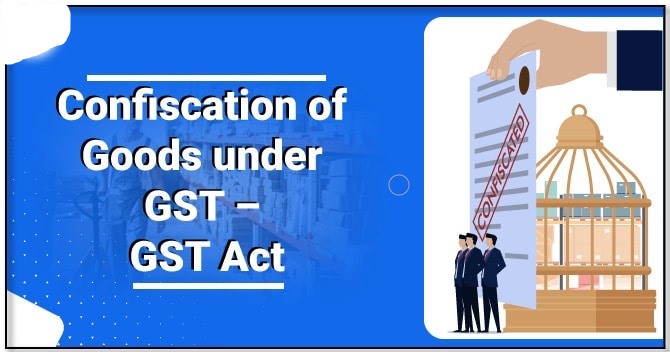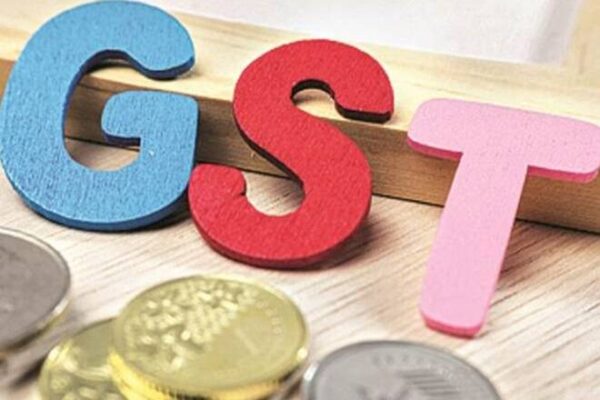The Hon’ble Allahabad High Court in its recent ruling in the case of M/S Metenere Ltd. v. Union of India and another [Writ Tax No. 360 of 2020] has quashed the order of confiscation passed by the Additional Commissioner, GST & Central Excise, alleging duty evasion and reduced the penalty from Rs 19,43,89,804/- to Rs 10,000/- under Section 122(1) of the CGST Act adjudging that the dispute pertained to non-maintenance of records and there was no intention to evade tax.
Facts of the case:
- The petitioner M/S Metenere Ltd is engaged in manufacture of lead ingots falling under GST Tariff Chapter Heading No. 7804.
- On 6.1.2018, Anti Evasion Department of GST, Greater Noida visited the factory premises of the Petitioner for verification of the records. Further, on 10.1.2018 another team from the same department visited the factory premises and passed an order of detention detaining 12,979 metric tonnes of entire stock of the Petitioner valued at INR 1,07,99,43,351/-, which included the stock manufactured prior to enforcement of GST.
- The Petitioner produced all the records however, the records of GST were not available in the factory premises as the same were kept at head office of the Petitioner, which were subsequently produced on various dates in January, 2018.
- Despite production of the records, as sought for, an order dated 4.4.2018 was passed seizing the goods detained on 10.1. 2018.
- The Petitioner was served with a Show Cause Notice (SCN) dated 21.5.2018, wherein the Petitioner was called upon to show cause as to why the goods which were seized, should not be confiscated and penalty should not be imposed.
- The Petitioner filed its reply to the SCN denying the charges and that any verification of the stock was conducted, also denied its liability and requested for dropping of the SCN and proposed penalty. Further, the Petitioner also preferred a Writ Petition before the Hon’ble High Court, Allahabad being Writ Petition (Tax) No. 334 of 2019, which was disposed of on 15.3.2019 directing the Additional Commissioner, GST & Central Excise Commissionerate, Gautam Budh Nagar (the Respondent) to decide the issue within a period of three weeks in accordance with law.
- In pursuance to the direction issued by the Hon’ble High Court, the Respondent heard the matter and passed an order confiscating the entire seized goods, however, the Petitioner was given an option of redeeming the confiscated goods on payment of redemption fine amounting to ₹ 12 crores in terms of the provisions of Section 130(2) of the CGST Act along with penalty of ₹ 19,43,89,804/- under Section 122(1)(xvi) & (xvii) of the CGST Act, and penalty amounting to ₹ 50,000/- was imposed on the Managing Director under Section 122(3) of the CGST Act.
- Aggrieved by the order, present Writ Petition has been preferred by the Petitioner.
Issues raised before the Allahabad High Court:
i. Whether the Respondents were justified in recording that the Petitioner has failed to maintain the records as required to be maintained under Section 35(1) of the CGST Act,2017 read with Rules 56 and 57 of the CGST Rules,2017 ?
ii. Whether the order of confiscation under Section 130 of the CGST Act were justified in facts of the case?
iii. Whether in the facts and circumstances of the case, the imposition of the penalty was in accordance with Section 122 of the CGST Act?
Order of Allahabad High Court: Deliberation and Ruling
- The proper officer was empowered to determine the liability of payment of tax in terms of the powers conferred under Section 35(6) of the CGST Act after resorting to the procedure as established under Section 74 of the CGST Act. A perusal of Section 73 and Section 74 of the CGST Act, makes it clear that a SCN is bound to be served prior to determination of the tax leviable on the ‘deemed supply’ whereas in the present case no such notice is available on record and it is common ground that apart from the said proceedings, no other proceedings have been initiated and concluded under Section 73 or 74 of the CGST Act.
- Even if it is admitted, for the sake of arguments, that the documents were not maintained at the registered office or the other place of business, there is no finding to the effect that any supply was made with an intent “to evade payment of tax” as is required under Section 130(1)(i) of the CGST Act. There is nothing on record to establish that the Petitioner did not account for any goods on which he is liable to pay tax under the CGST Act, as required to attract Section 130(1)(ii) of the CGST Act. It has not been established that there was any contravention of any provision or any Rules with an “intent to evade payment of tax”. None of the ingredients which are required for confiscation existed in the present case and thus, the confiscation itself was wholly arbitrary and illegal.
- A perusal of Section 67 of the CGST Act makes it clear that proper officer should have “reasons to believe” that there is any suppression of any transaction relating to supply of goods by the taxable person or as claimed or has claimed input tax credit in respect of entitlement or has indulged in contravention of the provisions of the CGST Act or the Rules made there under to evade tax under the CGST Act, or such person is keeping his accounts or goods in such a manner as is likely to cause evasion of tax payable under the CGST Act. However, in the present case, the Petitioner has not challenged the seizure order therefore, the Court did not consider the same in the absence of any pleadings or the arguments advanced or document produced in respect of the same.
- The amount of penalty imposable is provided under Section 122(1), which provides that the quantum of penalty imposable is INR 10,000/- or an amount equivalent to tax evaded or tax not deducted under Section 51 of the CGST Act (TDS) or short deducted or deducted but not paid to the Government or tax not calculated under Section 52 of the CGST Act (TCS) or short collected or collected but not paid to the Government or input tax credit availed of or passed on or distributed irregularly, or the refund claimed fraudulently, whichever is higher.
- Even if the allegations of the department are accepted to be true, the offence committed by the Petitioner would fall under Section 122(1), for following reasons; Firstly, the only allegations are that the Petitioner has not maintained the Book of Accounts as are required under the CGST Act and the Rules; Secondly the penalty has been imposed holding the Petitioner’s conduct in violation of Section 122(1)(xvi) and (xvii) of CGST Act where the penalty can be INR 10,000/- only as there is no question of tax evasion; Thirdly, no exercise for quantification of the tax evaded has been done in pursuance to the powers conferred under Section 35(6) read with Section 73 or 74 of the CGST Act, as such.
- In the given facts and circumstances of the case for the violations alleged and established against the Petitioner, the maximum penalty that could be imposed upon the petitioner is Rs. 10,000/-.
In view of above deliberations the Hon’ble Pankaj Bhatia,J allowed the writ petition. The impugned orders dated 15.1.2020 and 27.1.2020 were set aside insofar as it relates to confiscation of goods and imposition of penalty in excess of Rs. 10,000/-, as the confiscation has been set aside, there is no question of payment of redemption fine.
It was also clarified that ,confiscation of goods and the penalty imposed upon the petitioner herein as indicated in the order passed by the Additional Commissioner dated 28.5.2019 is set aside and the total penalty imposed upon the petitioner is quantified at Rs. 10,000/-.
Relevant provisions of the CGST Act, 2017
Section 35(1) & (6) of the CGST Act: “Accounts and other records
35.(1) Every registered person shall keep and maintain, at his principal place of business, as mentioned in the certificate of registration, a true and correct account of–
(a) production or manufacture of goods;
(b) inward and outward supply of goods or services or both;
(c) stock of goods;
(d) input tax credit availed;
(e) output tax payable and paid; and
(f) such other particulars as may be prescribed:
Provided that where more than one place of business is specified in the certificate of registration, the accounts relating to each place of business shall be kept at such places of business:
Provided further that the registered person may keep and maintain such accounts and other particulars in electronic form in such manner as may be prescribed.
(6) Subject to the provisions of clause (h) of sub-section (5) of section 17, where the registered person fails to account for the goods or services or both in accordance with the provisions of sub-section (1), the proper officer shall determine the amount of tax payable on the goods or services or both that are not accounted for, as if such goods or services or both had been supplied by such person and the provisions of section 73 or section 74, as the case may be, shall, mutatis mutandis, apply for determination of such tax.”
Section 122(1)(xvi) & (xvii) of the CGST Act: “Penalty for certain offences.
122.(1) Where a taxable person who––
(xvi) fails to keep, maintain or retain books of account and other documents in accordance with the provisions of this Act or the rules made thereunder;
(xvii) fails to furnish information or documents called for by an officer in accordance with the provisions of this Act or the rules made thereunder or furnishes false information or documents during any proceedings under this Act;
he shall be liable to pay a penalty of ten thousand rupees or an amount equivalent to the tax evaded or the tax not deducted under section 51 or short deducted or deducted but not paid to the Government or tax not collected under section 52 or short collected or collected but not paid to the Government or input tax credit availed of or passed on or distributed irregularly, or the refund claimed fraudulently, whichever is higher.”
Section 130(1) of the CGST Act: “Confiscation of goods or conveyances and levy of penalty.
130.(1) Notwithstanding anything contained in this Act, if any person-
(i) supplies or receives any goods in contravention of any of the provisions of this Act or the rules made thereunder with intent to evade payment of tax; or
(ii) does not account for any goods on which he is liable to pay tax under this Act; or
(iii) supplies any goods liable to tax under this Act without having applied for registration; or
(iv) contravenes any of the provisions of this Act or the rules made thereunder with intent to evade payment of tax; or
(v) uses any conveyance as a means of transport for carriage of goods in contravention of the provisions of this Act or the rules made thereunder unless the owner of the conveyance proves that it was so used without the knowledge or connivance of the owner himself, his agent, if any, and the person in charge of the conveyance,
then, all such goods or conveyances shall be liable to confiscation and the person shall be liable to penalty under section 122.”
READ / DOWNLOAD ORDER:
Read quality articles on GST authored by national level experts on the one and only exclusive GST portal CLICK HERE
***
Subscribe our portal and get FREE GST e-books , articles and updates on your e-mail.
Resolve your GST queries from national level experts on GST free of cost.
Frah Saeed is a law graduate specializing in the core field of indirect taxes and is the Co-founder of taxwallah.com. She has authored many publications on GST and is into full-time consultancy on GST to big corporates. She as a part of taxwallah.com heads a team comprising of Chartered Accountants and Advocates and plays a key role in our mission to disseminate GST knowledge to all.




